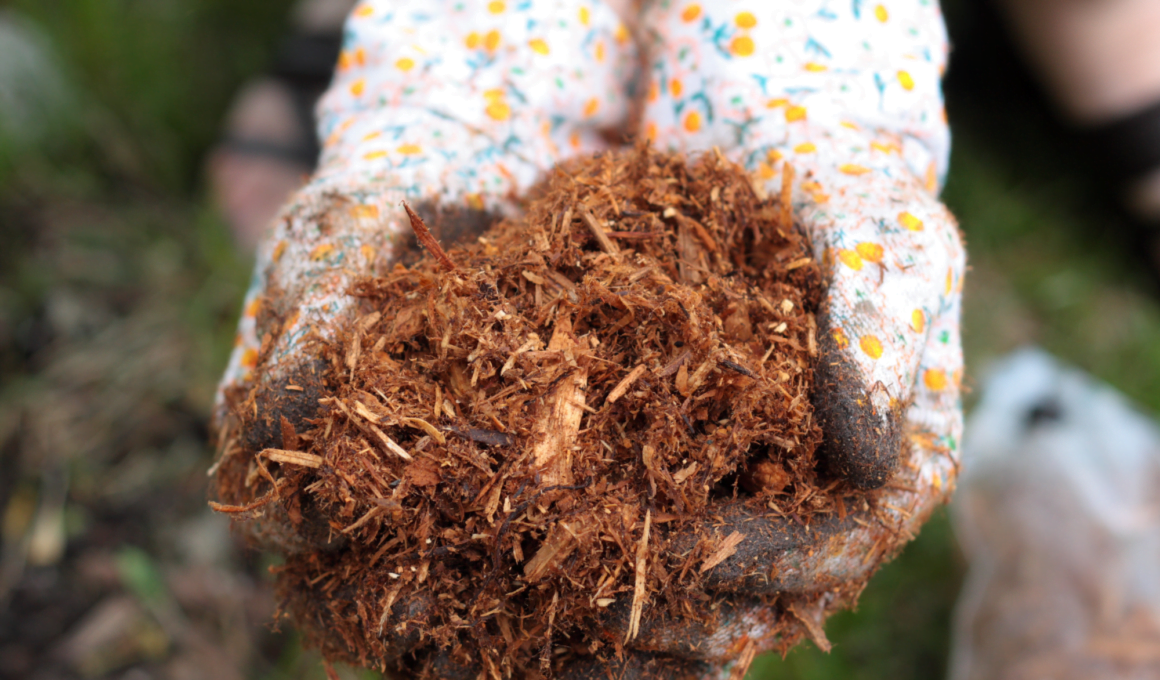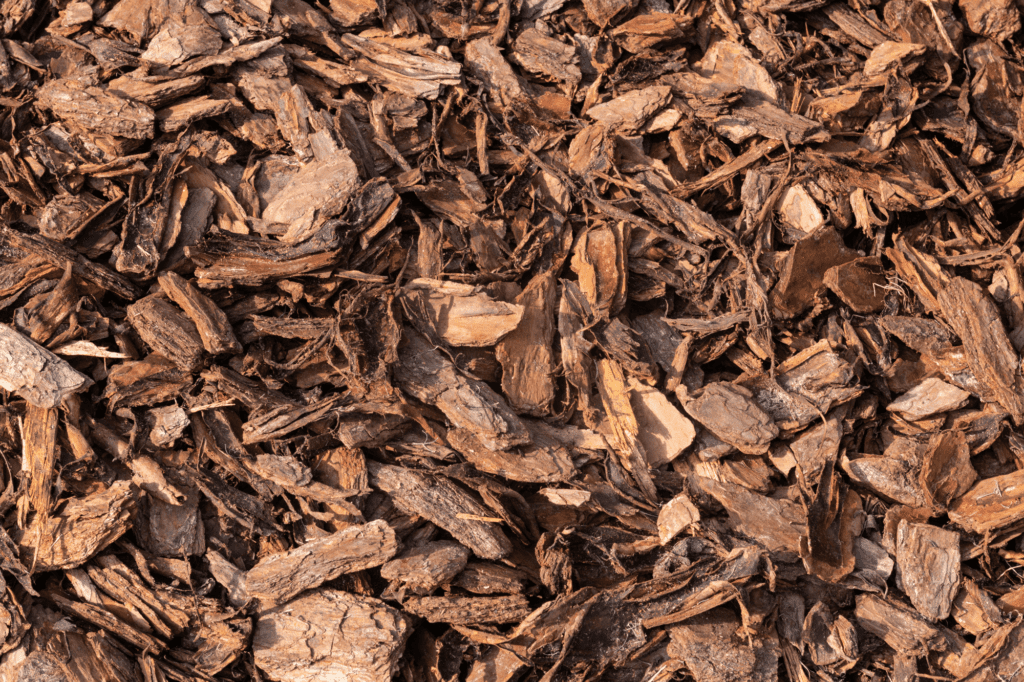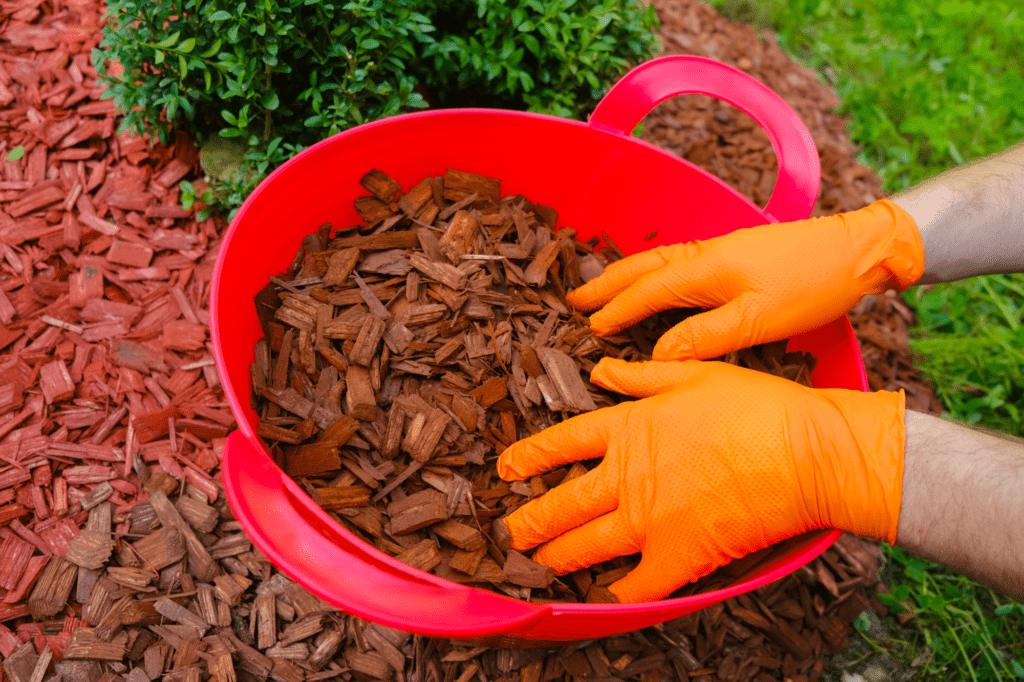When it comes to mulching your garden, choosing the right color can make a significant difference in both functionality and appearance. One of the most popular options is black mulch, and it’s easy to see why – it offers many benefits. However, as with any gardening choice, there are also some potential drawbacks to consider.
In this section, we will explore the pros and cons of using black mulch in your garden. We will discuss the benefits it offers, as well as any potential drawbacks. Additionally, we will touch upon the different color choices available when it comes to mulching your garden.
Advantages of Black Mulch
When it comes to mulching your garden, black mulch is a popular choice among gardeners. Here are some of the advantages it offers:
| Advantages | Description |
|---|---|
| Enhances Appearance | One of the key benefits of black mulch is its ability to enhance the appearance of your garden. Black mulch provides a uniform, sleek look that pairs well with a variety of plants. |
| Conserves Moisture | Black mulch helps to conserve moisture in the soil by reducing the amount of water that evaporates from the surface. This can be particularly beneficial in hot, dry climates where water conservation is important. |
| Controls Weeds | By creating a barrier between the soil and the sun, black mulch can help to prevent weeds from sprouting. This can save you time and energy by reducing the amount of weeding you need to do. |
| Insulates Plant Roots | Black mulch can help to insulate plant roots from extreme temperatures, keeping them cooler in the summer and warmer in the winter. This can create a more stable growing environment for your plants. |
Overall, black mulch can be a great choice for your garden if you’re looking for an attractive, low-maintenance option. Its ability to conserve moisture, control weeds, and insulate plant roots can all contribute to healthier, more robust plants.
Disadvantages of Black Mulch
While black mulch can offer numerous benefits to your garden, there are also some potential downsides to consider.
One major drawback is the potential for overheating of plant roots. Dark colors tend to absorb more heat from the sun, which can lead to increased temperatures in the soil and ultimately harm your plants. This can be especially problematic in hot, sunny climates.
Another concern with black mulch is the possibility of color fading over time. While most mulch colors will eventually fade, darker colors tend to do so more quickly. This can result in a less appealing appearance for your garden, which may require frequent reapplication of mulch to maintain its fresh look.
It’s also important to note that some plants may not thrive as well with black mulch as others. Certain species may prefer lighter colored mulches or no mulch at all, so it’s important to research the specific needs of your plants before choosing a mulch color.
Finally, black mulch may require more maintenance compared to other colors. Since it is more noticeable when it fades or degrades, you may need to reapply it more frequently to maintain a consistent appearance.
Overall, while black mulch can be a great addition to your garden, it’s important to weigh the potential drawbacks against the benefits before making a decision.
Black Mulch vs Other Colors of Mulch
While black mulch is a popular choice for many gardeners, it’s important to consider the benefits and drawbacks of other colors of mulch as well. Each color can offer unique advantages and drawbacks depending on your individual gardening needs.
Impact on Heat Retention
One of the primary considerations when choosing a mulch color is its impact on heat retention. Black mulch, due to its dark color, absorbs heat and can help warm the soil in cooler climates. In contrast, lighter-colored mulches reflect heat and can help keep the soil cooler in hotter climates.
However, keep in mind that in extremely hot climates, black mulch may absorb too much heat and raise the temperature of the soil to damaging levels. In these situations, a lighter-colored mulch may be a better choice.
Impact on Plant Growth
The color of your mulch can also have an impact on the growth and health of your plants. Lighter-colored mulches allow more sunlight to penetrate to the soil surface, which can be beneficial for sun-loving plants. On the other hand, black mulch can help prevent the growth of weeds and keep moisture in the soil, which can benefit most plants.
Impact on Aesthetics
The color of your mulch can also impact the overall aesthetics of your garden. Black mulch can provide a sleek and modern look, while other colors such as red or brown may offer a more natural and rustic appearance. Ultimately, the best mulch color for your garden will depend on your personal preferences and the style of your outdoor space.
It’s important to note that regardless of color, all mulches offer similar benefits in terms of weed control, moisture retention, and temperature regulation. Choose the color that best fits your gardening goals and aesthetic preferences.
Black mulch can provide a sleek and modern look to your garden
Landscaping with Black Mulch
Black mulch is a popular choice for landscaping projects, thanks to its striking appearance and practical benefits. Here are some ways you can use black mulch to enhance your outdoor space:
Creating Contrast
One of the biggest advantages of using black mulch in your landscaping is the way it can create contrast. Against green foliage, black mulch can highlight the natural beauty of your plants and flowers. It’s also an effective way to make pathways, borders and garden beds stand out.
Highlighting Plantings
Black mulch can make your garden the center of attention, by serving as a backdrop for your favorite plants and flowers. Add some colorful blooms to a bed of black mulch, and you’ll immediately draw the eye to your garden. This is particularly effective for seasonal displays, where you want to make an impact quickly.
| Tip: | Try combining black mulch with other colors for a multi-dimensional look. For example, try pairing yellow and orange flowers with black mulch for a striking contrast. |
|---|
Providing a Polished Look
Black mulch has a sleek, clean look that can lend a sophisticated feel to your landscaping. It’s a great way to create a polished, professional aesthetic in your outdoor space. Plus, it’s low-maintenance – once it’s in place, you won’t have to worry about refreshing it very often.
No matter how you choose to incorporate black mulch into your landscaping, it’s sure to add both visual interest and practical benefits to your garden.
FAQ – Frequently Asked Questions about Black Mulch
Q: Can black mulch be used in any type of garden?
A: Yes, black mulch is suitable for most types of gardens including vegetable gardens, flower beds, and potted plants. It can help conserve moisture, control weeds, and regulate soil temperature.
Q: Are there any potential drawbacks to using black mulch?
A: Yes, there are some potential disadvantages to using black mulch. These include the potential for overheating of plant roots, color fading, and the impact on certain plant species. It may also require regular maintenance to prevent it from compacting and becoming water-resistant.
Q: Can black mulch contribute to soil acidity?
A: While black mulch is typically made from organic materials, it may contribute to soil acidity if used excessively. It is important to monitor soil pH levels and adjust accordingly if necessary.
Q: What are the benefits of using black mulch?
A: Black mulch offers several benefits including enhancing the appearance of your garden, controlling weeds, insulating plant roots, and helping to conserve moisture.
Q: How does black mulch compare to other colors of mulch?
A: Black mulch is one of the most popular colors of mulch due to its versatility and aesthetic appeal. However, other colors such as brown, red, and even natural wood can also provide benefits depending on your specific gardening needs.
Q: How often should black mulch be replaced?
A: The frequency of replacing black mulch will depend on several factors including weather conditions, soil type, and the specific types of plants being grown. As a general rule, it may need to be replenished every 1-2 years to ensure maximum effectiveness.
Remember to choose the best type of mulch for your garden’s specific needs and consult with a professional landscaper or gardener for additional guidance and advice.










